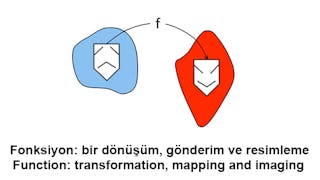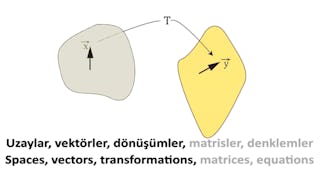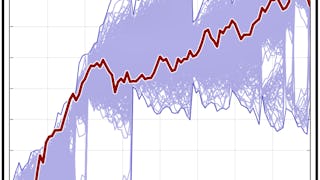Filter by
SubjectRequired
LanguageRequired
The language used throughout the course, in both instruction and assessments.
Learning ProductRequired
LevelRequired
DurationRequired
SkillsRequired
SubtitlesRequired
EducatorRequired
Explore the Stochastic Course Catalog
 Status: New
Status: NewJohns Hopkins University
Skills you'll gain: Generative AI, Large Language Modeling, ChatGPT, OpenAI, Artificial Intelligence, Data Ethics, Artificial Intelligence and Machine Learning (AI/ML), Prompt Engineering, Natural Language Processing
 Status: Free
Status: FreeSkills you'll gain: Geometry, Integral Calculus, Calculus, Applied Mathematics, Linear Algebra, Advanced Mathematics, Derivatives, Algebra, Mathematical Theory & Analysis, Graphing
 Status: Free
Status: FreeSkills you'll gain: Linear Algebra, Applied Mathematics, Algebra, Engineering Calculations, General Mathematics, Calculus, Mathematics and Mathematical Modeling, Advanced Mathematics, Differential Equations, Mathematical Modeling, Mathematical Theory & Analysis, Geometry

University of Colorado System
Skills you'll gain: Bayesian Network, Numerical Analysis, Estimation, Simulations, Matlab, Global Positioning Systems, Mathematical Modeling, Applied Mathematics, Algorithms, Computer Programming Tools
 Status: Free
Status: FreeUniversidad de Palermo
Skills you'll gain: Algebra, Arithmetic, Mathematical Modeling, General Mathematics, Graphing

Johns Hopkins University
Skills you'll gain: Applied Mathematics, Estimation, Numerical Analysis, Calculus, Cost Estimation, Mathematical Modeling, Operations Research, Derivatives, Algebra

American Psychological Association
Skills you'll gain: Box Plots, Descriptive Statistics, Histogram, Probability & Statistics, Plot (Graphics), Graphing, Statistical Visualization, Statistical Analysis, Statistical Methods, Data Analysis, Analytical Skills
 Status: Free
Status: FreeSkills you'll gain: Applied Mathematics, Linear Algebra, Differential Equations, Advanced Mathematics, Algebra, Mathematical Modeling, Mathematical Theory & Analysis

Universidad Autónoma Metropolitana
Skills you'll gain: Graphing, Geometry, Trigonometry, Algebra, Mathematical Modeling, Applied Mathematics

Johns Hopkins University
Skills you'll gain: Network Analysis, Statistical Modeling, Bayesian Network, R Programming, Simulations, Applied Mathematics, Graph Theory, Data Analysis, Probability, Statistical Analysis, Markov Model, Probability Distribution, Machine Learning
 Status: New
Status: NewJohns Hopkins University
Skills you'll gain: Data Warehousing, Apache Hadoop, Transaction Processing, Distributed Computing, Database Systems, Relational Databases, Database Management, Cloud Computing, Big Data, Data Processing, Machine Learning, Scalability, Data Integrity, Disaster Recovery, Algorithms
 Status: New
Status: NewNortheastern University
Skills you'll gain: Linear Algebra, Statistical Machine Learning, Statistical Modeling, Probability, Statistical Methods, Bayesian Statistics, Probability Distribution, Mathematical Modeling, Machine Learning, Applied Mathematics, Statistical Inference, Algebra
In summary, here are 10 of our most popular stochastic courses
- Generative AI and Symbolic Reasoning: Johns Hopkins University
- Çok değişkenli Fonksiyon I: Kavramlar / Multivariable Calculus I: Concepts: Koç University
- Doğrusal Cebir I: Uzaylar ve İşlemciler / Linear Algebra I: Spaces and Operators: Koç University
- Particle Filters (and Navigation): University of Colorado System
- Matemática Preuniversitaria: Universidad de Palermo
- Calculus through Data & Modeling: Applying Differentiation: Johns Hopkins University
- Measures of Variability: American Psychological Association
- Doğrusal Cebir II: Kare Matrisler, Hesaplama Yöntemleri ve Uygulamalar / Linear Algebra II: Square Matrices, Calculation Methods and Applications: Koç University
- Geometría Analítica Preuniversitaria: Universidad Autónoma Metropolitana
- Computational and Graphical Models in Probability: Johns Hopkins University










